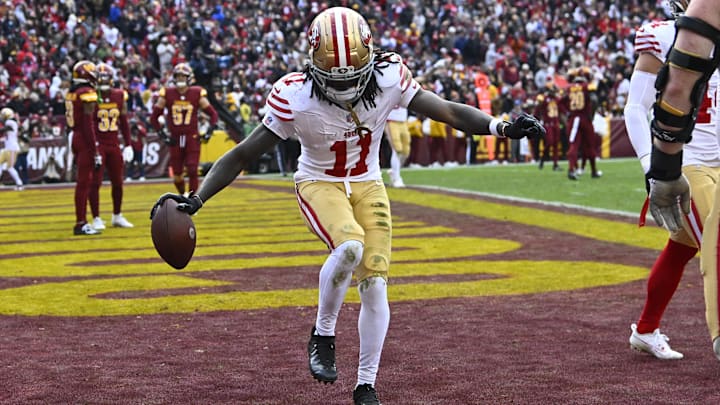With Amari Cooper holding out, the Cleveland Browns must decide the best way to solve the situation. Ideally, they can come to terms with their No. 1 wide receiver, who has been fantastic over the past two seasons despite inconsistent play from the quarterbacks.
Having said that, there's a chance they might not be willing to extend Cooper. While reports from Mary Kay Cabot have said the front office wasn't blindsided and still wants Cooper, there are also reports that they don't want to put any guaranteed money on his deal beyond 2024 — which does nothing to give him security.
So until all an agreement is reached, speculation will fly. That includes the possibility of Cooper being traded away. Again, Mary Kay Cabot touched on this subject in a recent mailbag. A reader asked her if the Browns could wind up shipping Cooper to San Francisco in exchange for Brandon Aiyuk, who also wants a new contract with the 49ers.
Would Cooper for Ayiuk solve anything for the Browns or 49ers?
In theory, it's not a bad idea. The Browns would get a younger wideout but would have to pay a heftier price tag. They would also need to give up draft capital in this scenario. As for the 49ers, they're not exactly going to walk away with a bunch of free space, since they would be getting a player who wants to get paid as well.
That's why Cabot says this deal seems unlikely.
"As for swapping the two receivers, it seems highly unlikely. The 49ers would have to be willing to pay up for Cooper, who currently averages $20 million a year, and the Browns would likely have to go north of $30 million over about four years for Aiyuk." — Cabot on potential Browns/49ers trade
Cabot is right on with this take. This would be a fun idea but in the end, it doesn't solve anything for either team. The 49ers would be on the hook for an older receiver while saving a minimal amount of money.
The Browns would get the better deal with the younger Aiyuk but then would need to find a way to free up enough to pay him north of $30 million. Throw in the lost draft pick — which wouldn't be a late-rounder — and it wouldn't be a win for them either.
